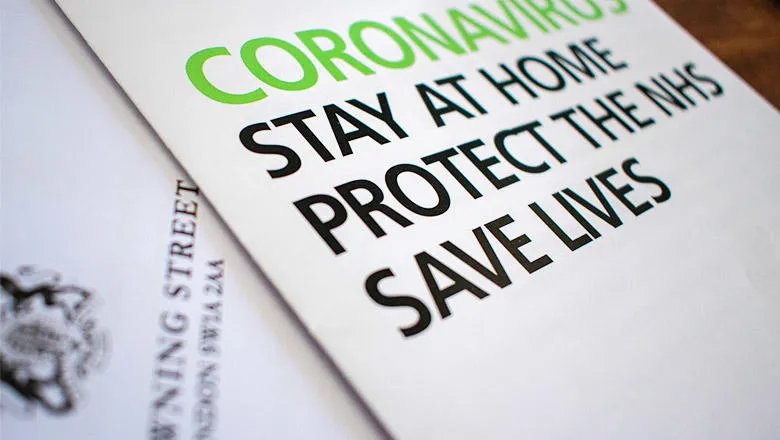10 June 2022
Protecting reputations and making money seen as motivating Covid responses
Large proportions of the public question the motives of government and scientists

PERITIA: Public attitudes towards institutions involved in tackling the COVID-19
Read the research
Three in four (74%) people in the UK think the government is motivated by building or protecting its own reputation when it comes to Covid-19, while six in 10 (61%) believe it is motivated by making lots of money in relation to the pandemic, according to an international study of six countries.
But the UK is far from alone in this view, with majorities in other nations sharing the same perceptions. For example, 73% in Italy think the government there is motivated by protecting its reputation on Covid, and 58% in Ireland believe its government is motivated by making money.
These perceptions also extend, albeit to a lesser extent, to scientists involved in tackling coronavirus, with 61% of the UK public thinking they are driven by protecting their reputation and 45% believing they are motivated by making lots of money.
The research was carried out by the Policy Institute at King’s College London as part of Policy Expertise and Trust in Action, an EU-funded project that aims to help citizens and policymakers understand trust in science and identify trustworthy expertise.
The study also finds that, on coronavirus, people in the UK are least likely to think their government is motivated by improving the lives of people like them – 42% think this is the case, the lowest of the six countries surveyed, with Poland (45%) and Germany (47%) next-worst on this measure.
And across a range of questions, scientists tackling Covid fare much better than the government in terms of how their motivations are perceived by the public. In the UK, when it comes to the pandemic:
- 71% say scientists are motivated by concern for those most likely to be harmed by Covid or actions taken to address it, compared with 51% who say the same about the government.
- 71% think scientists are motivated by improving the lives of future generations – higher than the 47% who think this is true of the government.
- 72% believe scientists are motivated by the thought the public are counting on them, versus 53% who feel this way about the government.
The six countries included in the study – the UK, Ireland, Italy, Germany, Norway and Poland – were selected to reflect a range of different contexts across factors such as location within Europe, population size, GDP levels, political structure and levels of trust in institutions, as measured in other studies.
Scientists are also seen as more competent than governments on Covid
The UK public are more likely to take a negative than positive view of government competence in dealing with Covid. When asked to score the government’s competence on a scale where 0 means incompetent and 10 means competent, around half (47%) of UK adults give a negative rating of 0 to 3, while 25% give it a positive rating of 7 to 10. Another 27% give it a more neutral rating of 4 to 6.
The UK government’s score is similar to the six-country average (45% giving a negative rating). Poland comes out worst on this measure, with 66% rating their government’s competence negatively, while Norway comes out best, with a far lower proportion – 29% – giving a negative rating.
By contrast, scientists’ performance on the pandemic is judged far more favourably. Only 14% of people in the UK think scientists involved in tackling coronavirus are incompetent, compared with 58% who think they are competent – again in line with the average across the six countries included in the research.
Dr Paul Stoneman, research associate at the Policy Institute, King’s College London, said:
“Large proportions of the public in the UK and other European nations question their governments’ motives in responding to Covid-19, believing they are driven by protecting their own reputations and making lots of money when it comes to the pandemic. But this kind of suspicion is not only a problem for governments – considerable shares of the public think the same about scientists involved in tackling Covid too. While there is recognition that other, more selfless motivations have informed the pandemic response, these findings suggest there is still some way to go to if we’re to properly build trust in authority for when crises emerge.
“And some countries in our study clearly have a bigger job to do on this than others – for example, people in the UK are least likely to agree their government is motivated by improving the lives of people like them when it comes to coronavirus. Communicating clearly and transparently with the public is vital for building a connection, ultimately helping to ensure they follow relevant guidance.”
Survey details
This survey was conducted drawing on the proprietary online panel of Savanta in the UK and similar panels in their network in the other countries. Quotas were set to ensure sufficient responses within each country in terms of age, gender, region, education, and income. Once data collection was complete, weights were applied to observations to create a sample reflective of the population in age, gender, region, education, and income. Sample sizes were: 2,017 in Germany; 2,030 in Ireland; 2,044 in Italy; 2,045 in Norway; 2,168 in Poland; and 2,042 in the UK. Data were collected directly from respondents via a self-completed online survey. Fieldwork dates ranged from 4th-19th January 2022.
